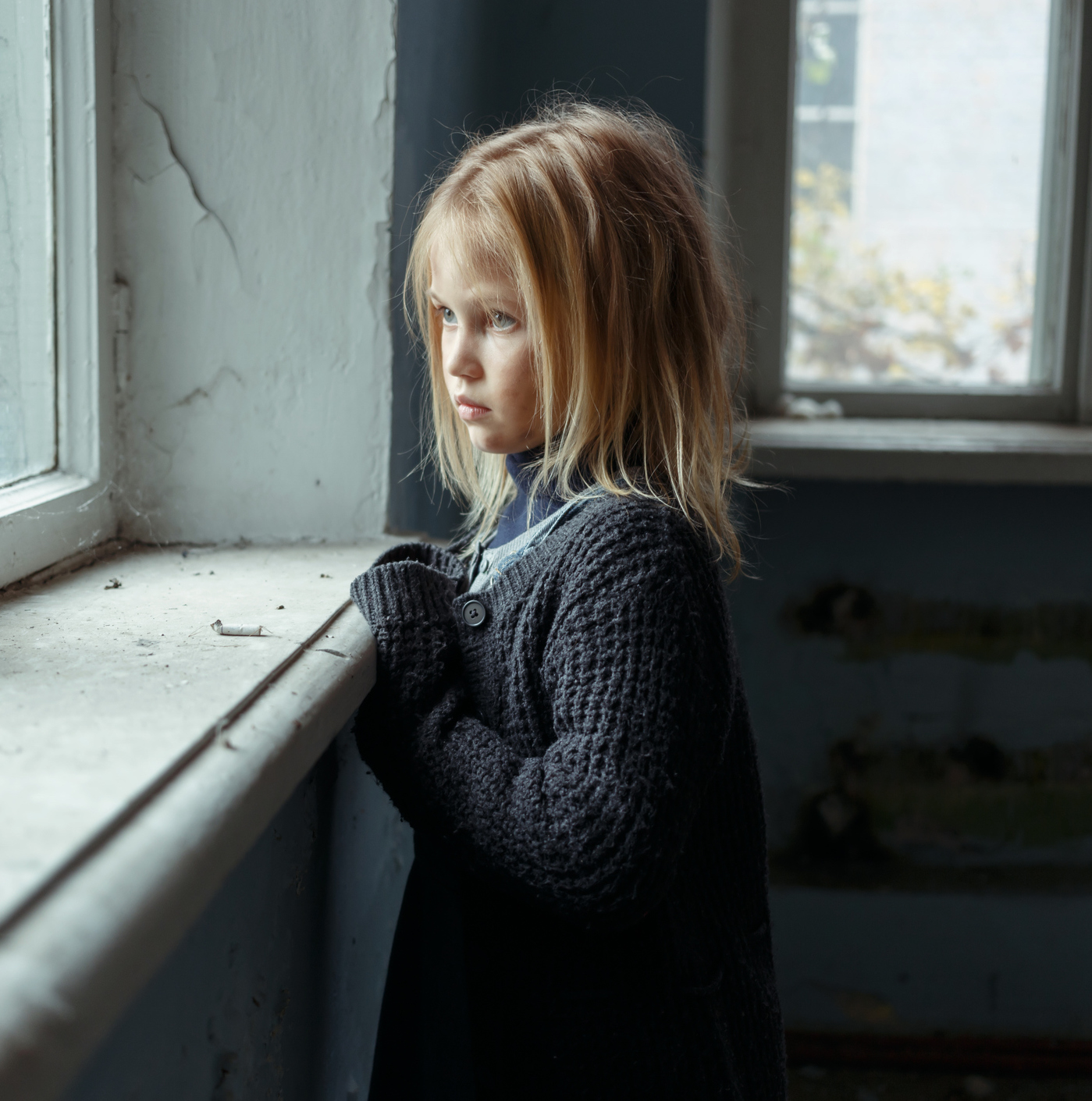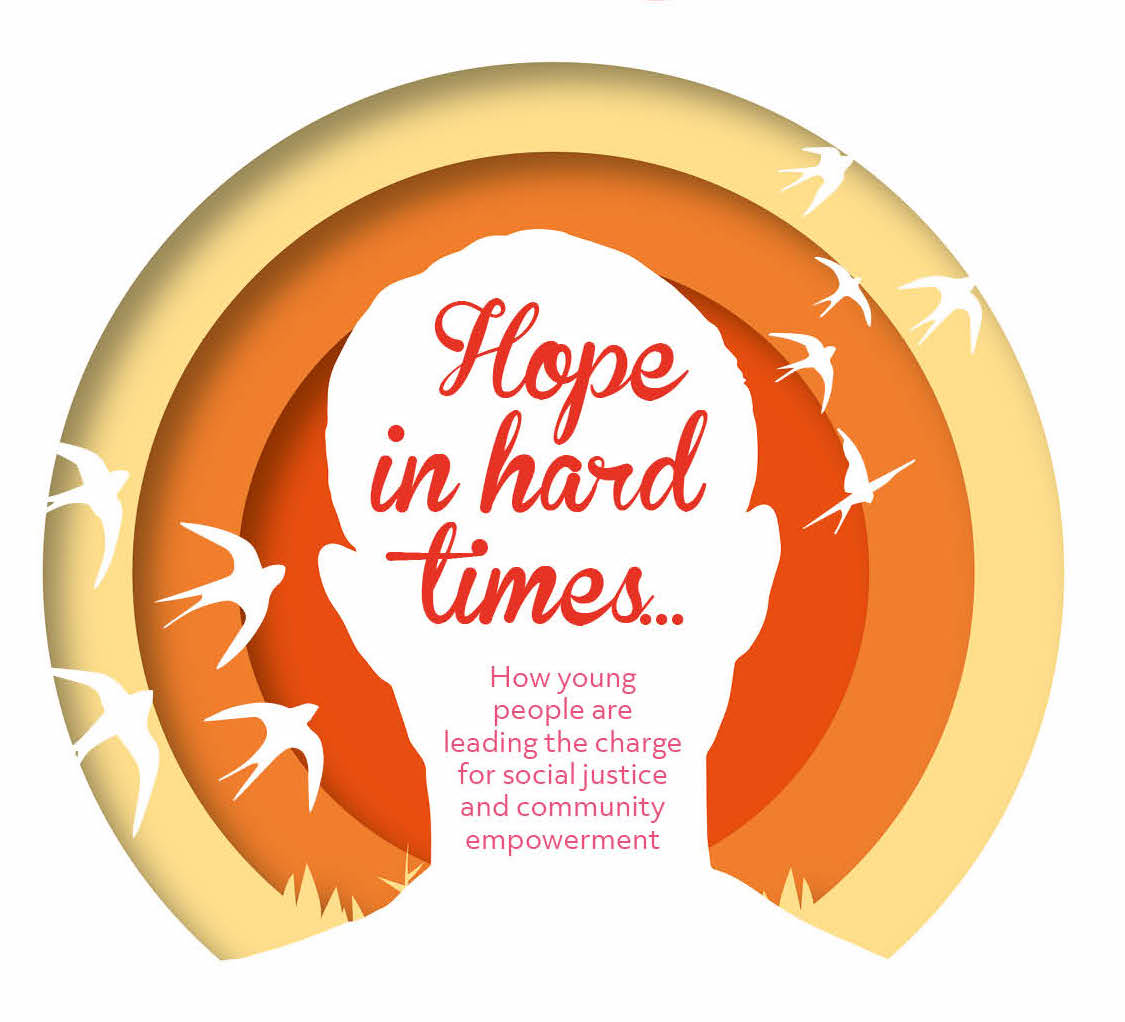"It's social engineering and it's morally wrong"
Bill Scott, Chair of Scotland’s Poverty and Inequality Commission, shares his perspective on the two-child benefit limit, what the new government’s must be – and his hopes for a more just society
By Chris Small and Jennifer Drummond
The Poverty and Inequality Commission’s remit is to monitor the Scottish Government’s progress towards legally binding child poverty targets, provide advice and promote solutions. It was established in statute by the Child Poverty (Scotland) Act 2017, and follows on from the previous, non-statutory body appointed by Ministers which operated from 2017-19.
Although the Commission has only met twice since its formation on 1 July, it has already identified priorities for action. Alongside research into free school meals uptake, responding to the national transport strategy consultation and providing input to the social security committee’s enquiry on benefit take-up, the Chair and his eight Commissioners also intend to explore intersectional inequalities, in-work poverty and how the adoption of a wellbeing economy will contribute to reducing poverty in Scotland.
The Commission’s first official piece of work – a review of the Child Poverty Action reports produced by local authorities and health boards – was submitted to Ministers in November.
So, is Scotland on track to deliver on promises to effectively tackle child poverty? What more needs to be done? And crucially, how are we going to do it?
Do you think Scotland is on the right trajectory when it comes to tackling child poverty?
Bill Scott: There is a lot of really good work to address child poverty, but our trajectory at the moment is wrong; child poverty is going upwards. And we are working against a context where child poverty is expected to rise to over one in three. More needs to be done than is in the current plan to just stand still, far less meet the targets.
The Scottish Government has committed to bringing forward the Scottish Child Payment. While welcome, do you agree increasing benefits is not enough in isolation?
BS: I think the introduction of the Scottish Child Payment [which increases benefits for low-income families with children] is going to make a real difference. It will stabilise things, maybe even reduce things in the first couple of years. But it is never going to be enough on its own. The social security system is a safety net. It can help mitigate and even lift a few children out of poverty, but better employment and lower cost housing are also essential. The outgoing Commission identified living costs as key for progress. If we can’t address those issues, that in itself would wipe out any gains you make in social security and improved income from employment.
Ultimately, a good social security system is necessary because there will always be people excluded from the labour market; disabled people, people with long-term health conditions, people with caring responsibilities, but it is not the only thing we need.
Former Scottish Government poverty advisor Naomi Eisendstadt said in her recent book Parents, Poverty and the State that we need to increase household income, highlighting measures such as better paid leave and flexible working support for parents. What do you think of what she has proposed?
BS: I have huge respect for Naomi and think [the 2016 report] Shifting the Curvehad a real impact on Scottish Government policy. She got them to recognise it was a real issue that had to be tackled. So when she speaks, I think we all owe [it to] her to listen.
She argues the need to reduce pressure on families, and I very much echo that. The pressures from benefit cuts and cuts in services are particularly felt by those on the lowest income who are relying on them the most. So there is a disproportionate impact. We need to take more action to support parents to enter and sustain better rewarded employment.
Within the powers the Scottish Government already has, there’s ways to increase income and decrease living costs. The Housing 2040 strategy is currently being developed; we need to look at that and make sure there is low-cost social rented housing available. We’ve been looking at social housing for middle market households and those living in precarious financial situations, but we need to maintain the level of investment for low rent, low-cost social housing as well.
What the Scottish Government has done with Free School Meals is to be welcomed, but we need to address uptake. Recent research shows uptake in schools in the same authority can be as low as 20% or as high as 90%. We need to address the stigma still. And improve uptake of Universal Credit.
We need to look at a system of automation, whereby if a family applies for a free school meal they automatically get a school uniform grant, rather than having to make another application. Glasgow does this and we would like to see it happen in other local authorities; if you make one application, you get access to a range of benefits. We need to see more of that to make sure families are getting all the help they can.
Is there a problem with just expecting families to engage with services?
BS: We need to focus our energies on using existing services. The health service, GP practices for example, is a trusted service. And nearly everybody goes to their GP or health visitor for [their child’s] immunisations. There you could talk to families in settings where they feel comfortable and from a position of trust, about the range of benefits available, such as Best Start Grant, etc. Nurseries are another. I’ve heard about welfare rights provision in schools; speaking to parents at parents’ nights of the help and benefits available. It’s about thinking “where are they?” and taking the service to them rather than expecting them to come to us. It’s a smart way of reaching some of the families that are in the greatest need.
There have been many reports about the negative impact of the Westminster government’s two-child limit on accessing benefits. Should it be scrapped?
BS: Yes. Any family could be affected by poverty at some stage in their life, perhaps because of ill-health, disability, an accident or sudden onset of a disabling condition. All of these things could plunge a family from being in relative affluence into poverty. To say to them “Oh, you’ve got three kids. We’re not going to pay for the third because you should have anticipated at some point in the future you might not be able to afford it”, is just awful. Are we only allowing rich people to have larger families? It’s social engineering and morally wrong.
Also, thinking in practical terms, who is going to look after our ageing population if we don’t have enough young people? We need a workforce for the NHS, for social care. Where are we going to get that if we restrict the number of children we have now?
Do you agree full UNCRC incorporation could give us an important reference point for delivering on rights to tackle poverty? With November’s announcement about the aim of ‘maximal’ incorporation, should we be optimistic?
NS: I am optimistic. I believe if the UNCRC is incorporated into Scots law it could mean new rights that children need and are entitled to. In fact, one of the rights is a right to access benefits so, going back to the last question, any ‘third’ child would have a right to benefits. If we incorporated [the UNCRC] into Scots law, then we would have a law in conflict with UK policy. But I think it’s about time we started having some of those debates around children’s rights and, if we are going to honour those rights, what kind of society we need. In some ways, I look forward to those conflicts being exposed.
We [the Commission] would certainly be pushing for children’s rights to be honoured. It’s progressive realisation; we know some things aren’t going to be delivered overnight, but we should be looking to progress rather than regress and see children’s rights diminished. In Scottish society we do have the view that children should have rights and [incorporation] would give a new impetus to the rights agenda.
Do we need to be more radical in tackling child poverty, and more focused on redesigning our economy?
BS: I think there is a real natural sense of justice in the Scottish public, but we need a more radical approach. The problems that are there are structural and won’t be overcome easily.
The Scottish Government estimates it spends about £125 million a year mitigating or taking people out of poverty. When the Scottish Child Payment is fully rolled out, it expects to spend an additional £180 million, taking the total to over £300 million. But the impact of the [UK Government] cuts hasn’t fully been felt yet. And the impact is estimated to be well over £2 billion in the Scottish economy by the mid ‘20s. The £300 million has to be set against that level of cuts to people’s income. And it’s all coming out of the pockets of poorer families. So we need a radical restructuring.
The Commission and I are interested in finding out more about the wellbeing economy approach which says the objective of the economy shouldn’t just be increasing Gross Domestic Product, but the wellbeing of every citizen. If that was to be the object of economic growth we need new measures of success. Is everybody benefiting, or just a minority?
There’s a huge interest, and commitment, especially amongst young people, to save the environment and I don’t think that’s a completely different agenda to tackling inequality; we’ve seen a misuse of resources to increase the wealth of a few, and we need to harness the resources to improve the wellbeing of everybody.
Following the General Election, what should the new UK Government’s priorities be in challenging child poverty?
BS: First would be to readopt the reduction in child poverty targets in law. Reintroducing child poverty targets would influence other policy areas. In Scotland, having those targets is driving at least some policies in the right direction.
Second would be an immediate increase in the minimum wage. We know two-thirds of children living in poverty are in working households, so we need to address that.
Third, we need to reverse some of the cuts to Universal Credit, especially the two child rule. When Universal Credit was proposed it was supposed to lift families out of poverty when they entered work. Now, over 50% of families on UC are finding they have reduced income from the legacy benefits that they’ve come off, and it’s plunging them into poverty. I am aware of families losing up to £140 per week because of the loss of disability premiums and carers premiums.
And we need a massive investment in social housing. Housing of course is devolved, but an investment programme in England and Wales would have a positive effect in Scotland. Thanks to “Barnett consequentials”, any increase in spending south of the border in areas that are devolved to the Scottish Parliament, such as health or housing, results in an increase in the Scottish Block Grant to meet the increase at UK level. So, an investment programme initiated by the UK Government would afford the Scottish Government more to invest here.
They are my personal priorities, I would hasten to add!
And priorities for Holyrood?
BS: Continuing and improving investment in social housing and also offering additional help to families that are worst affected by the UK benefit cuts. Lone parents are the worst affected, and families with disabled children or disabled parents.
The Scottish Government has got limited powers in the employment side but can encourage more employers to become Living Wage employers. Where local authorities have taken on that challenge, it has resulted in a number of employers outwith the public sector taking it on as well, so that could be one way.
What do you want to have achieved through your role with the Commission?
BS:I hope the Commission contributes to a more evidence-based approach, but also changes public discourse to focus on a more socially just society where every child is valued. It’s only by valuing every child that we will have a better society to live in.
Every parent worries about the future for their children. I’m a parent, and a grandparent, and I think I have more to worry about now in terms of the future for our grandchild. If we don’t achieve a socially just society, I worry not just for our children but for society as a whole.
This interview first appeared in Children in Scotland magazine, Issue 195. Published in December 2019.
Images by CameraShy Photography

Scotland's Poverty and Inequality Commission
The Commission works to address poverty and inequality in Scotland
Find out more
Our manifesto for the next UK government
Alongside 17 partners, we’ve made a series of calls ranging from rights to climate change
Download the manifesto
Children in Scotland magazine: Issue 195
Get more content from the current issue
Buy the latest issue
UNCRC incorporation is right and welcome
Children in Scotland support the recent announcements on maximum incorporation
Read our news story